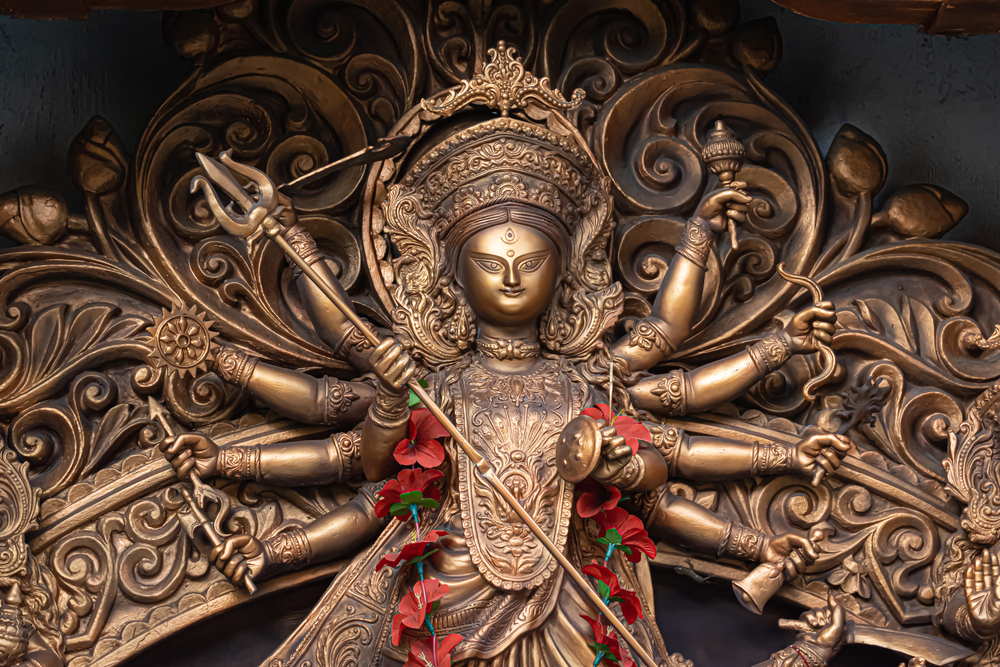
According to many scholars, Hinduism is the world’s oldest religion, with roots going back more than 4,000 years. It’s the third largest religion after Christianity and Islam, with the majority of its adherents living in India.
Foundational Beliefs
One of the foundational concepts in Hinduism is that there is no one, true way to practice Hinduism. It’s often considered more of a way of life or group of similar religious traditions than a monolithic entity. However, most Hindus worship a single deity, known as Brahman. They do recognize other gods and goddesses and believe there are multiple ways of reaching Brahman.
Hindus believe that the Vedas, or sacred texts, are the highest authority and will endure after all else in the world is destroyed. The Vedas are believed to have been written between 1500 BC to 500 BC.
Hindus believe in samsara—the continuous cycle of life, death, and reincarnation. They also hold true the law of cause and effect–or karma. Since the soul is never destroyed in death but is reborn continuously, karma follows it from life to life. If Hindus have done something wrong in this life, the consequences will follow them into the next.
The goal of each individual soul, or atman, is to achieve moksha, which means liberation or salvation. Instead of being reincarnated again, the soul will recognize its true nature and be united with Brahman. There are several ways this can happen, including the path of knowledge, the path of duty, and the path of devotion to Brahman.
Another core belief of Hinduism is that of dharma, which is hard to translate into English. It refers to right conduct, moral action, duty, and righteousness. When Hindus follow dharma, they strive to do the right thing, with the right intentions, to the best of their abilities, at all times. Hindus believe that people’s actions and beliefs determine the course of not only their current life but their future ones as well.
Hindus hold all life in high esteem. Many are vegetarians, though some will only avoid eating beef and pork. The cow is a sacred animal, representing Mother Earth, since its milk nourishes many different creatures.
Hindu Deities
In addition to Brahman, the supreme God force in all things, Hindus worship a variety of lesser deities. These include:
- Brahma — the God who created all living things in the world
- Vishnu — the God who protects the universe and everything in it
- Shiva — the God who destroys the universe so he can recreate it
- Devi — the Goddess who fights to upkeep dharma
- Krishna — the God of love and compassion
- Lakshmi — the Goddess of purity and wealth
- Saraswati — the Goddess of learning
The Caste System of Hinduism
Hindus believe in a strict caste system, a social hierarchy based on individuals’ karma and dharma. The four main castes are:
- Brahmin — spiritual and intellectual leaders
- Kshatriyas — public servants and protectors of society
- Vaisyas — skilled workers
- Shudras — unskilled laborers
There’s also a group called “Untouchables,” who exist outside the caste system. They comprise the lowest level of the social hierarchy.
When India gained independence from Great Britain in 1947, its constitution banned caste-based discrimination. However, some traditions still hold, such as marrying within your own caste.
Holidays in Hinduism
Hindus have many holidays, festivals, and days they hold sacred. Some of the more well-known include:
- Diwali — the festival of lights
- Navaratri — celebrating the harvest
- Holi — the festival of love, color, and spring
- Krishna Janmashtami — the celebration of Krishna’s birth
- Maha Shivaratri — the festival of Shiva
Hinduism is an ancient religious way of life practiced by more than 1.2 billion people worldwide. Adherents strive to always do what is right, so karma will look favorably on them when they are reincarnated after death. Ultimately, however, they yearn for moksha, when they will become one with their highest deity, never to return to life on earth.

